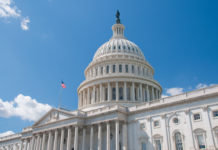Today, the Department of Health and Human Services hosted a stakeholder call to share information about the end of the public health emergency. On February 11th, the Secretary sent a letter to all governors stating that there will be a renewal of the PHE but this is intended to be the final renewal – which means the PHE will expire May 11, 2023. CMS also sent a roadmap to governors publicly available listing out what’s changed and what has not changed. CMS recognized that covid is not over for many people and remains committed to working with stakeholders.
Key Points:
- Access to free vaccination, testing and treatment will not be affected by the end of the PHE.
- CMS process to move these into the commercial market will happen in late summer early fall.
- Access to COVID vaccines, test, and treatments will continue to be covered for both Medicare and Medicaid beneficiaries through September 2024. However, to clarify on the testing, Medicare and Medicaid will cover medically necessary PCR and antigen test for Medicare and Medicaid beneficiaries, ordered by physician or approved clinician. The current free over the counter test will end with PHE.
- FDA’s emergency use authorization is not going to be affected by end of PHE. Authorization over various products will remain and FDA will have the authority for new EUAs when criteria for issuance are met.
- At CDC, there will be changes to reporting of lab results and immunization data. HHS had authority to require lap reporting of negative tests will end with the PHE. Additionally, at the state level, vaccine administration data will no longer be required. CDC is working on voluntary data use agreements for both.
- CDC’s Community Transmission Level data will remain in place after May 11th as it’s determined on data streams not expected to change including hospital admissions and positive tests.
- The Consolidated Appropriations Act extend many telehealth health waivers until December 31, 2024 and CMS also shared that the Medicaid telehealth flexibilities were available prior to and can continue after the PHE ends – CMS is encouraging states to use telehealth moving forward.
- Training flexibility for nursing aides in nursing homes will end with PHE with 4 months after to complete required certification training. CMS is aware of the training backlog and are pushing state to consider how to accommodate all the necessary training.
- Long-term care facility testing of residents and staff will expire with PHE but reporting of resident and staff infections will not expire as it was finalized in the Home Health rule in for CY2022.
- CMS is looking to community-based organizations to spread the word and make sure beneficiaries confirm updated contact information and respond quickly to maintain coverage.





